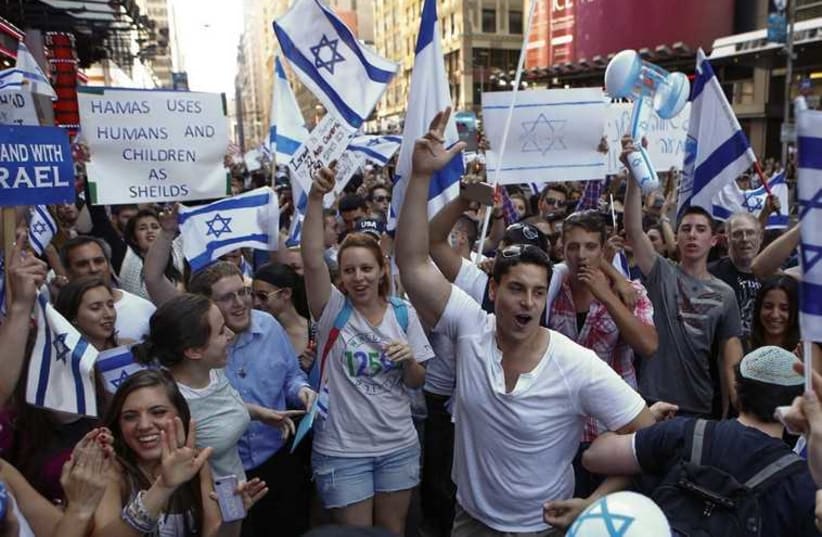See the latest opinion pieces on our page
A Polish member of parliament gave the Nazi salute. And an Australian rugby star competing to play in the National Football League sent out a tweet blaming Jews for the death of Jesus.Most frightening of all, tens of thousands of genuinely unbalanced and unreasonable people chanted “Death to Israel” and burned Israeli flags in Tehran, in a rally organized by a regime that supposedly now can be trusted to refrain from acting on those sentiments.That was all just one day’s headlines.In one newspaper. It likely did not even scratch the surface of the anti-Semitic outbursts that occurred around the world in the previous 24 hours. If American Jews actually had become “unbalanced” or “unreasonable” over these kinds of developments, perhaps it would not be so surprising.But they haven’t.No American Jews have rioted. Nobody has marched to the White House. Nobody has fired anybody. Nobody has even organized any boycotts. We have seen some people acting in unbalanced and unreasonable ways in several US cities in recent months – but American Jews have not behaved in ways that are even remotely comparable.What “unreasonableness” can Foxman point to? That a few people shouted during a speech by an Obama administration official at a Jewish event? They didn’t drown out the speaker. They didn’t throw tomatoes at him. He wasn’t forced to leave the podium. They yelled a few remarks, and then they stopped yelling.Sure, in an ideal world, nobody would ever heckle anybody else. But in the real world, it happens occasionally. An optimist might say that an emotional response now and again at least indicates that the audience is paying attention, and that the speaker is addressing issues that are worthy of vigorous debate. Rabbi Stephen S. Wise – who sometimes spoke about controversial issues from the pulpit, especially in his younger days – reportedly once said that if he gave a sermon and at least one person did not walk out in protest, that sermon was not worth giving.American Jews express their differences with pens, not swords. Ballots, not bullets.There is a free and spirited American Jewish press. There are uncountable public programs at which Jews express their opinions. Sometimes they may get a little angry at each other. But is that justification for a blanket accusation that they have become “unbalanced” or “unreasonable”? There was even, this past spring, a democratic election among American Zionists for delegates to the World Zionist Congress.Yes, one little faction tried to have another little faction disqualified from the race. The Zionist Supreme Court ruled against the complainers. Both sides went home, they each ended up receiving about five percent of the final vote, and that was that. Nobody took the judges hostage when the ruling went against them; nobody rioted over the fact that 95% of the voters chose a different party.The fact that so few American Jews participated in the election is deeply disappointing – and surely an occasion for some soul-searching among American Zionists leaders – but the fact that such an election took place at all, shows that most American Jews continue to conduct themselves in a civilized, balanced and reasonable manner.The writer is the author of 15 books on Jewish history, Zionism and the Holocaust.
On the same day that Foxman’s warning about Jewish “hysteria” appeared, we learned that a 13-year-old Jewish boy in Paris was brutally beaten by six men yelling, “Take that, dirty Jew!” An Israeli-Arab imam, speaking at a prominent mosque, blamed the “accursed” Jews for all problems in the Muslim world, and denounced Israel’s prime minister as “a Jewish dog.”
